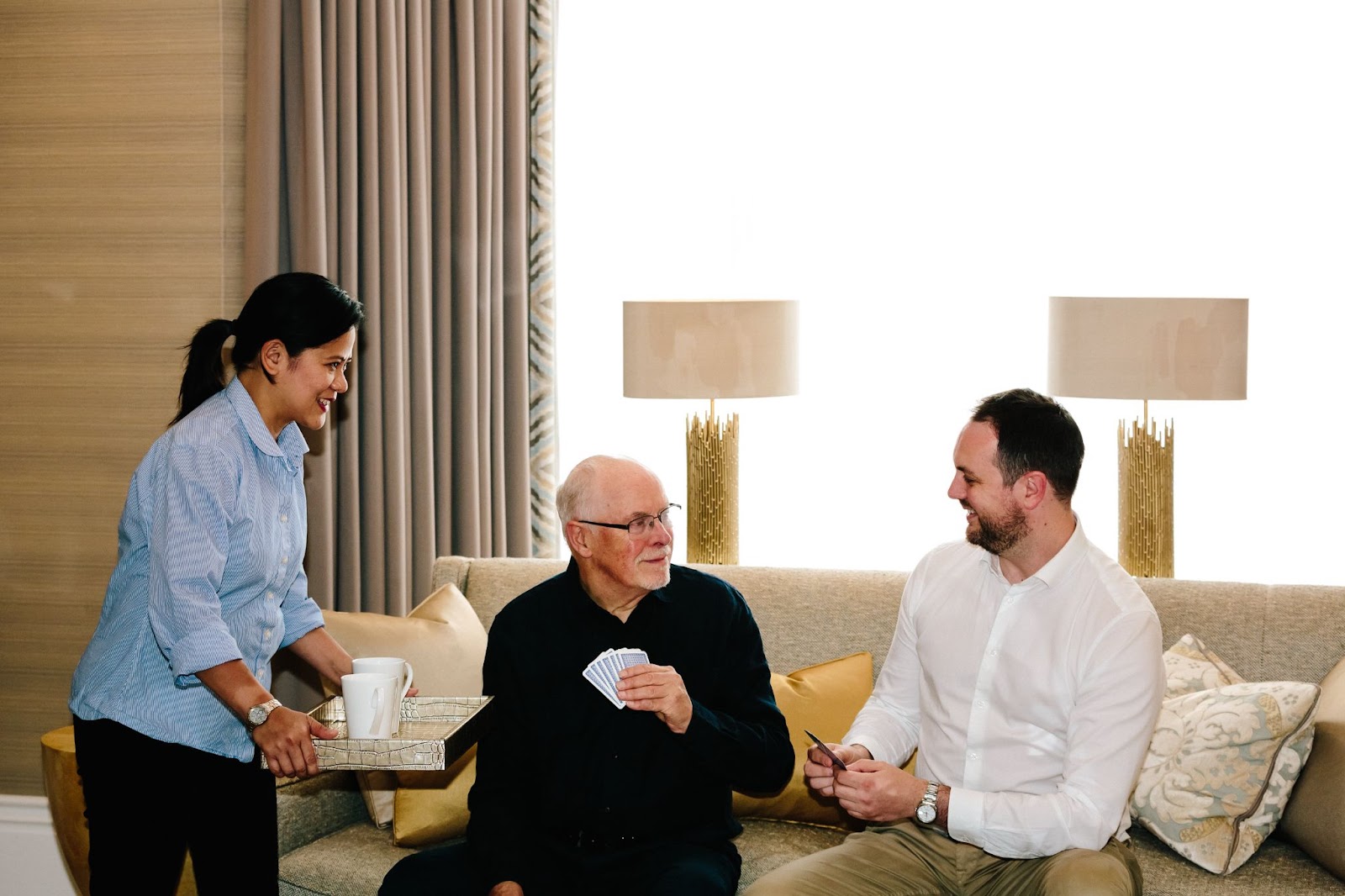Dementia and Alzheimer's activities: Clinical guidance for reducing boredom

Written by: Dimple Chandarana
Last updated: August 2025
When someone you care about is living with dementia or Alzheimer's, you may notice they seem restless, agitated, or withdrawn. Often, these behaviours signal something we can address: boredom.
Boredom is a common concern for people living with dementia. Unlike typical boredom, dementia-related boredom can trigger challenging behaviours including agitation, depression, and withdrawal from social interaction.
The encouraging news? Meaningful activities, properly adapted to individual abilities, can significantly improve quality of life for people living with dementia whilst providing relief for their families.
Why boredom happens in Alzheimer's and dementia
Dementia affects the brain's ability to initiate activities and process information. In Alzheimer's specifically, changes in brain structure make it harder to plan activities or remember how to start familiar tasks. This doesn't mean the person has lost their capacity for enjoyment - rather, they need more support to access activities that bring them pleasure.
Boredom in Alzheimer's connects directly to other challenging symptoms including apathy, depression, anxiety, agitation, and aggression. Many people living with Alzheimer's experience boredom, which often triggers these difficult behaviours.
Whether someone is living with Alzheimer's or another form of dementia, abilities change over time, but the human need for purpose and engagement remains constant. When this need isn't met, frustration and difficult behaviours often follow.
How boredom impacts behaviour in dementia
Unaddressed boredom in dementia creates specific challenges:
- Agitation and restlessness manifest as pacing, fidgeting, or repetitive movements.
- Aggressive behaviours may include verbal outbursts or physical resistance to care.
- Depression and withdrawal show as loss of interest in surroundings or relationships.
- Sleep disturbances create confusion between day and night routines.
- Increased confusion occurs when the mind isn't engaged, worsening cognitive symptoms.
Addressing boredom isn't just about filling time - it's about maintaining dignity, connection, and quality of life.
Choosing activities
Examples of helpful activities include creative expression, sensory engagement, cognitive stimulation, and gentle physical tasks. Physically and mentally stimulating activities can improve overall wellbeing.
Consider past interests and current abilities
Start with what brought joy before dementia. A former teacher might respond well to reading activities, whilst someone who loved cooking could enjoy simple food preparation tasks.
The key is adaptation, not abandonment. It's important to adjust the complexity whilst preserving the essence of what made the activity meaningful.
Focus on emotional connection
Activities should create positive emotional responses rather than test cognitive abilities. Success isn't measured by perfect completion but by moments of engagement, recognition, or pleasure.
15 stimulating activities backed by care experts
These activities have been recommended by dementia care specialists and are used regularly by Guardian Carers companions:
Creative expression:
- Simple art projects - watercolour painting, collaging with magazines
- Listening to music - familiar songs from their youth, live performances
- Singing together - hymns, folk songs, or favourite tunes
Sensory engagement:
- Aromatherapy activities - smelling herbs, essential oils, or familiar scents
- Textile activities - feeling different fabrics, folding towels
- Gardening - potting plants, watering, or arranging flowers
Social connection:
- Looking through photo albums - discussing family memories and relationships
- Video calls with family - short, regular contact with distant relatives
- Pet therapy - interaction with gentle dogs or cats
Cognitive stimulation:
- Simple puzzles - large-piece jigsaws or word games adapted to ability
- Reading together - newspapers, favourite books, or poetry
- Memory boxes - exploring objects from their past
Physical activities:
- Gentle exercise - seated stretches, walking, or dancing to music
- Household tasks - folding washing, setting tables, or light cleaning
- Baking simple recipes - measuring ingredients or stirring mixtures
Tips for carers: Encouragement without pressure
Watch for engagement cues:
- Does their posture change when the activity begins?
- Do they make eye contact or smile?
- Are they calmer afterwards?
Adapt expectations:
- Focus on enjoyment, not achievement
- Allow for shorter attention spans
- Be prepared to switch activities if interest wanes
If someone isn't responding positively, take a break and try something different. The goal is connection and comfort, not completion.
When to adapt or stop activities
Activities should enhance life, not create stress. Signs that an activity needs adjustment include visible frustration or agitation, complete lack of engagement after several attempts, physical discomfort or fatigue, and resistance or verbal refusal.
Preferences can change as dementia progresses. An activity that worked last month might need modification or replacement.
Supporting your family through dementia and Alzheimer's care
Care planning in dementia must be personalised and regularly reviewed, taking into account changing needs over time to improve wellbeing and manage symptoms including boredom.
As part of Hometouch's doctor-founded approach to dementia care, Guardian Carers combine our personalised matching service with clinical expertise. Whether you need someone for a few hours each week or full-time live-in support, our process ensures your family member connects with a carer who understands both their care needs and personal interests.
Talk to one of our care experts about finding the right support for your family. No pressure, just answers when you need them most.
